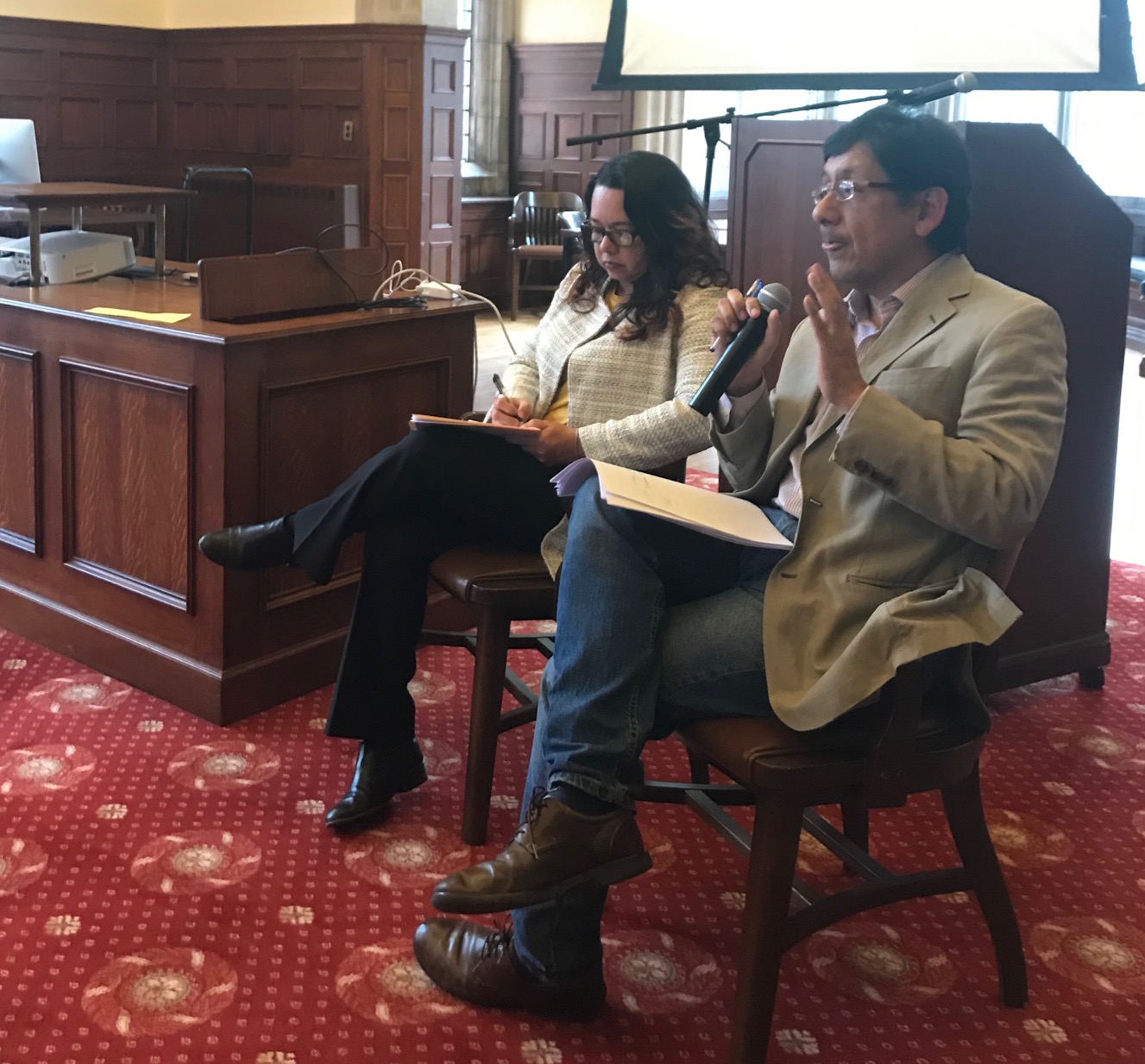Contentious Narratives: Truth Commissions’ Reports and the Struggle over Social Discourse in Latin America
By Maria Perez Mendoza ’21
Guest speaker Felix Reátegui speaks about the complexities of Truth Commissions around the world and of the challenges that arise when creating a narrative during the process of reconstructing memories.

Felix Reategui and Irina Junieles, answering questions from students attending the colloquium “Memory, Truth and Justice: Lessons from the Peace Processes in South America”
Reátegui pointed as well that Latin America has had an exemplary record of truth commissions around the globe, highlighting those in Chile with The National Commission for Truth and Reconciliation and Argentina with The National Commission on the Disappeared. Amongst others, exist the ones in Perú (2001), Guatemala (1994), El Salvador (1993), Brazil (2014), Bolivia (1982 started but not finalized) and Ecuador (2010). In addition, there have started to be talks of a truth commission in Venezuela under the present political climate. The truth commission in Colombia, Reátegui pointed out, is one of the largest and most complex truth commissions in the world. There exists a conflicting interpretation as to why so many exist in Latin America, highlighting the prevalence of violence and authoritarianism as well as the willingness to help victims. But to what extent are the commissions useful? And useful to whom?
Perhaps the biggest struggle that truth commissions face is representation, in which rather than every case being pursued, similar cases are determined representative enough so that all victims feel as if justice has been served. Reátegui also commented on how the objectives of these commissions have changed over time. Early on Commissions tended to focus on just finding the facts, or a demand for historical truth, and now more often, as in the case of Colombia, the most pressing question becomes the rationale behind the actions, or why the perpetrators did what they did.
Impregnated in the role of truth commissions is the intense struggle over memory: not only remembering but also forgetting. In our course, “Attesting to Violence: Aesthetics of War and Peace in Cotemporary Colombia”, we have discussed the actors involved in the enduring armed conflict in Colombia. Just as there exists a push for truth to become visible to the general public, there also exists the push for denial and oblivion to prevail, from certain actors and acomplises which would benefit from the act of forgetting, hiding behind the shield of oblivion. In cases involving the National Army as well as business owners and high rank politicians, agents of Colombia’s conflict gain from the truth being kept from the eyes of the people or from justifying what they did. Power disparity causes some stories to be heard, and makes it easy for some stories to be forgotten.
Another challenge is that, if the truth commissions don’t shape their final reports whithin the parameters of social science and law, they run the risk of being unsatisfactory to the population. Because truth commissions struggle to be as objective as possible, suffering is translated into legal terms and loses the sensitivity of human emotion. However, within all the different subjectivity of truth that different actors can contribute, there can exist a basic undeniable truth within the memories of the victims. Therefore, it is imperative to construct a set of testimonial narratives that would complement the reports from the commissions.
As part of our course we had two major presentation assignments: a thematic one highlighting some of the historical context, and a presentation on the memories of the victims. This combination of contextual information along with a humanist perspective of the violence gave the numbers presented in the reports a voice. Presenting the atrocities simply as figures in a report dehumanizes the victims, but showcasing their resilient efforts to move on through their testimonies ultimately dignifies them.
Truth commissions are not perfect, but as Reátegui quoted from Canadian author Michael Ignatieff they help “reduce the margin of lies”. All in all, the Truth Commission in Colombia was set to make memories, and to perhaps shed light as to how to prevent further violations of human rights across the world: la no repetición.